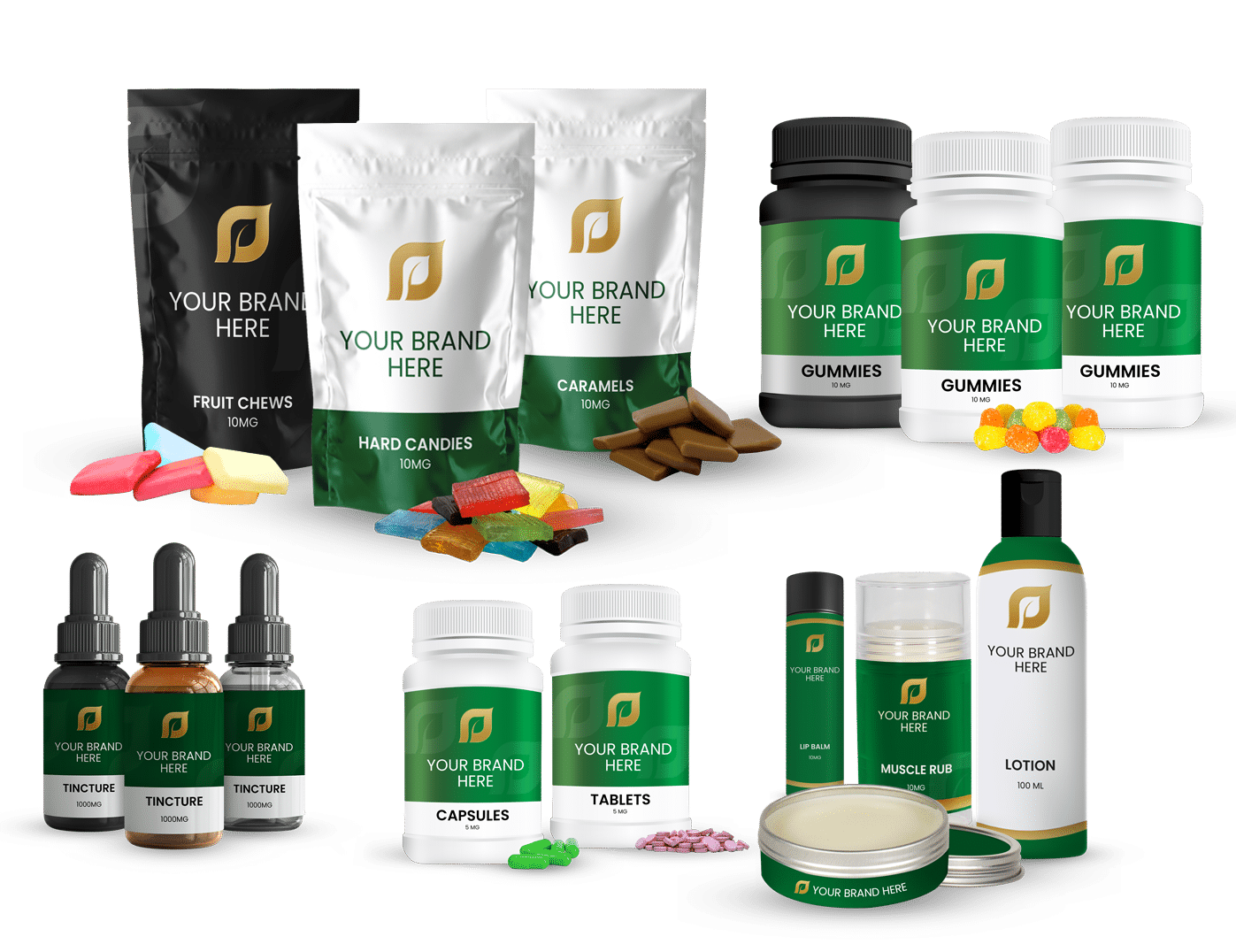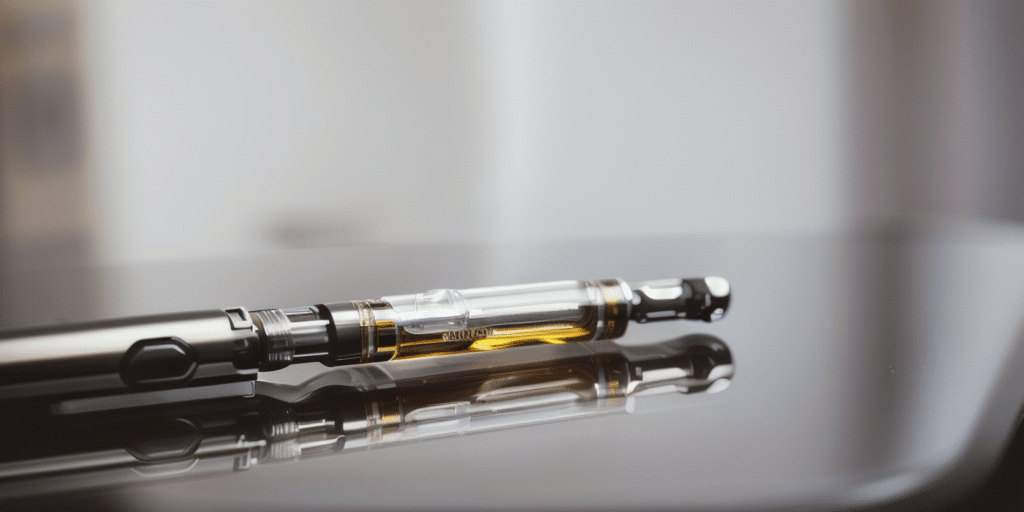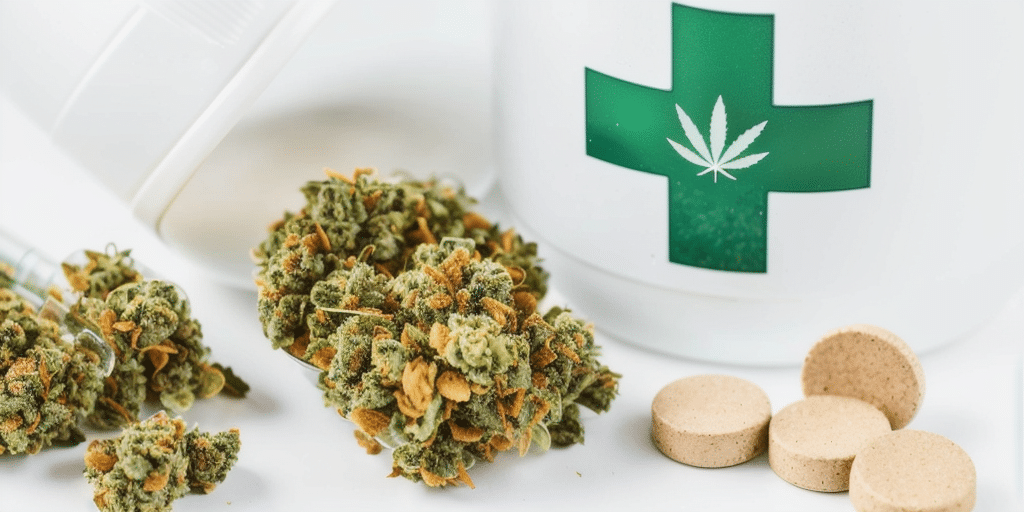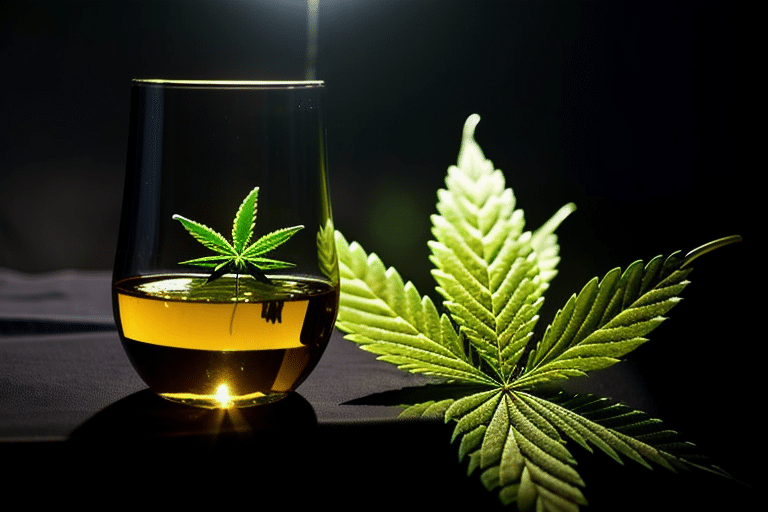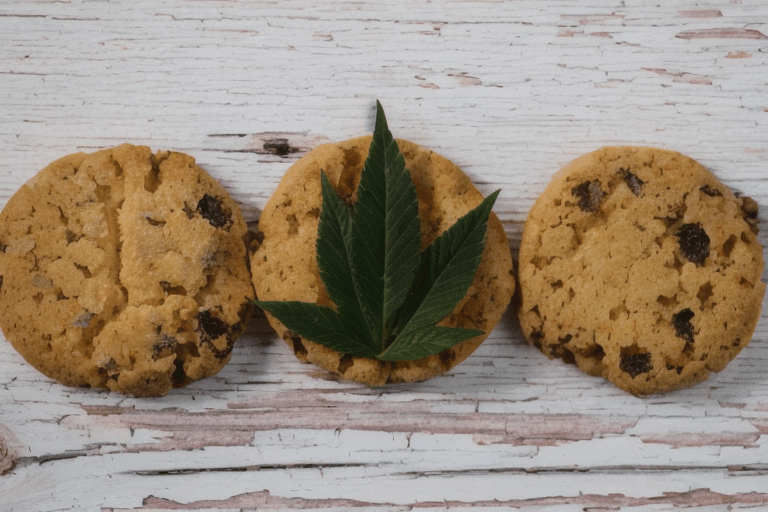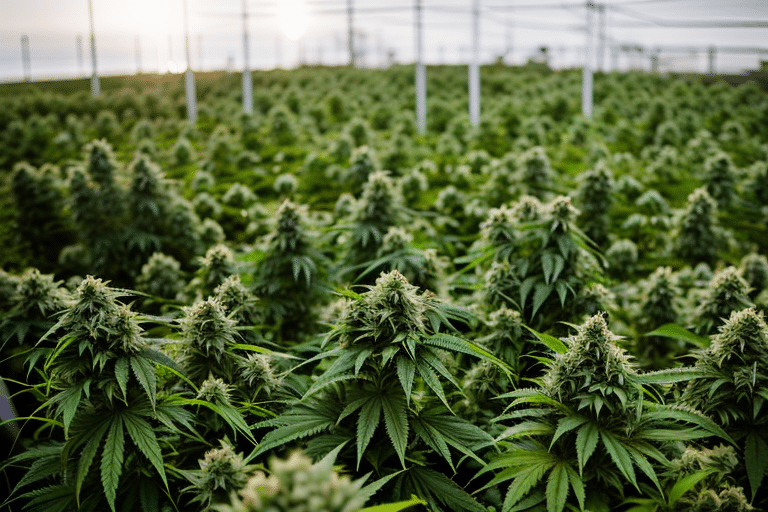Delta-9, or delta-9-tetrahydrocannabinol (Delta-9-THC), is the primary psychoactive compound in marijuana responsible for its mind-altering effects, and while it does not typically cause fatal overdoses, excessive consumption can lead to disconcerting side effects such as paranoia, anxiety, hallucinations, and an elevated heart rate.
Table of Contents
ToggleA Curious Introduction: The Enigma of Delta-9 and Its Consequences
Delta-9, formally known as delta-9-tetrahydrocannabinol (Delta-9-THC), is a psychoactive compound in cannabis that binds to cannabinoid receptors in the brain and body, causing effects such as euphoria, relaxation, increased appetite, and altered perception of time during marijuana consumption.
Decoding Delta-9: A Definition
In the world of cannabis, there lies a mysterious and powerful agent known as Delta-9. Cloaked under the formal title of delta-9-tetrahydrocannabinol (Delta-9-THC), this intriguing compound holds the key to the mind-bending effects often linked with marijuana consumption.
Delta-9 Takes Center Stage in Marijuana’s Symphony
Imagine partaking in a smoky, aromatic joint or savoring a scrumptious pot-infused brownie. As you indulge, the enigmatic Delta-9 sets to work, skillfully binding itself to cannabinoid receptors scattered throughout your brain and body.
The ensuing symphony? A medley of sensations that dance between euphoria and tranquility, accompanied by an insatiable appetite and a peculiar distortion of time. But what if our maestro, Delta-9, gets carried away? This article will guide you through the captivating realm of this infamous cannabinoid and explore its connection to marijuana overdose.
The Curious Case of Cannabis: Can One Overdose on Marijuana?
Marijuana overdoses differ from other substances like opioids or alcohol because Delta-9-THC, the primary psychoactive component in marijuana, interacts with receptors in the brain that do not govern vital functions such as respiration or heart rate, making it less likely to result in fatal consequences.
Decoding the notion of overdose
The term “overdose” may evoke images of extreme consequences, but it simply refers to the ingestion of a substance in amounts exceeding the advised dosage. While overdoses can indeed be harmful or even fatal depending on the substance, marijuana presents a fascinating exception. Let’s embark on a journey to unravel the enigma of marijuana overdose.
The Delta-9 Dilemma: Comparing Cannabis to Other Substances
Delta-9-tetrahydrocannabinol (Delta-9-THC) is the principal psychoactive component in marijuana, responsible for eliciting its mind-bending effects. In contrast to opioids, notorious for their high risk of overdose due to their suppression of essential functions like breathing and heart rate, Delta-9 appears rather benign.
Remarkably, there have been no reported fatalities attributed to marijuana overdoses. This intriguing fact can be explained by the locations of receptors in our brains that interact with Delta-9 – they are not found in areas governing vital functions such as respiration or heart rate. Conversely, substances like opioids or alcohol exert a direct influence on these critical systems.
Though Delta-9 might not induce a fatal overdose akin to other drugs, excessive consumption can still provoke some disconcerting side effects.1 These may encompass paranoia, anxiety, hallucinations, and an elevated heart rate – symptoms that can be unsettling yet rarely pose a mortal threat.
Ultimately, while overindulging in marijuana won’t land you at death’s doorstep, it’s crucial to recognize your personal boundaries and cultivate responsible consumption habits. Stay curious and keep an eye out for more captivating insights into Delta-9 and its role in marijuana use!
The Hidden Perils of Delta-9: Unraveling Marijuana Overdose Symptoms
In the realm of cannabis, Delta-9-tetrahydrocannabinol, or THC for short, is a bit of a celebrity. It’s the component that gives marijuana its psychoactive kick, but it also harbors a darker side. When THC levels climb too high, users can unwittingly stumble into the treacherous territory of marijuana overdose symptoms.
The Surprising Symptoms of Delta-9 Overdose
To the uninitiated, an overdose on marijuana might sound like a fantastical tale. However, it’s all too real when THC concentrations surge. This can lead to a whirlwind of distressing symptoms such as anxiety, panic attacks, rapid breathing, increased heart rate, low blood pressure, intense paranoia, and even hallucinations – not exactly the euphoric experience many seek.
Dissecting the Factors Behind Marijuana Overdose
Curiously enough, Colorado has seen a marked increase in hospital visits due to marijuana overdoses since the legalization of recreational cannabis in 2012.2 One particularly harrowing incident involved a 19-year-old college student who plummeted from a hotel balcony after consuming a THC-laden cookie. So what elements converge to create this perfect storm?
- First-time users: Just as with any new venture, inexperience can breed misfortune. Newcomers to the world of cannabis are particularly susceptible to overdosing.
- High THC content: Edibles with soaring levels of THC can quickly tip the scales toward an overdose.
- High doses: Like Icarus flying too close to the sun, those who indulge in excessive amounts of cannabis risk being burned by an overdose.
Alarmingly, children are particularly vulnerable to accidental marijuana ingestion – which could result in severe consequences such as respiratory failure or coma. Additionally, living in states with legalized marijuana increases the risk of unintentional overdose injuries among kids.
Blending marijuana with alcohol or other substances is another hazardous endeavor, as it amplifies the likelihood of an overdose. Furthermore, laced marijuana (cannabis mingled with more potent substances like cocaine or PCP) can also trigger an overdose.
To avert a marijuana overdose, individuals can arm themselves with knowledge about the risks of marijuana abuse, avoid unsavory street dealers peddling laced weed, and seek treatment for marijuana addiction if needed. While no specific antidotes exist to counteract a marijuana overdose, medical professionals can offer supportive care to manage vomiting, anxiety, and respiratory and cardiovascular distress. Thankfully, the Maryland Poison Center reports that most marijuana overdose patients are treated and released from the emergency room without aggressive intervention.
So, when indulging in cannabis-infused treats, bear these factors in mind and partake responsibly to sidestep any detours down Overdose Lane.
The Allure and Peril of Edibles: An Unassuming Route to Marijuana Overdose
Imagine a world where indulging in the euphoric sensations of marijuana no longer requires inhaling smoke or drawing attention to oneself. A world where cannabis consumption can be as discreet as savoring a gummy bear or sipping on a beverage. This is the tantalizing promise of edibles, which have captured the hearts and minds of countless cannabis aficionados.
A Delectable Revolution in Cannabis Consumption
The appeal of edibles lies in their ability to deliver delta 9 THC, the compound responsible for marijuana’s psychoactive effects, through an array of enticing flavors and forms. From chocolate brownies to sweet gummies, these treats offer adventure-seekers a novel way of experiencing the “high” that has long been associated with smoking marijuana.
Beneath the Surface: Hidden Hazards Lurking Within
But as with many things in life, there’s a darker side to this seemingly innocent culinary innovation. Edibles, for all their allure, can also serve as an unassuming pathway to marijuana overdose. And when one strays too far down this road, the consequences can be dire.
An overdose on Delta-9-THC may trigger severe hallucinations, paranoia, and other unsettling symptoms that can last up to half a day. This is not an experience easily shaken off or forgotten.
The danger arises from the deceptively slow onset of edibles’ effects. Unlike smoking or vaping, which deliver near-instantaneous results, edibles take their time working their way through our systems. In the face of such delays, impatient users may unwittingly consume more than they bargained for – only realizing their error when it’s far too late.
The Ripple Effects: Physical and Mental Health Concerns
Of course, overdosing on Delta-9-THC doesn’t merely result in temporary discomfort, it can also have lasting consequences. Physically, we’re talking about heightened heart rate, blood pressure fluctuations, and even panic attacks. Over time, the potential damage to vital organs becomes increasingly concerning.
Mentally, marijuana use has been linked to increased rates of anxiety and depression.3 This is due in part to cannabinoids altering our brain’s delicate chemistry, leading to impaired problem-solving abilities and emotional well-being. And let’s not forget the risks of smoking on lung health – a danger that still applies to those who choose traditional consumption methods over edibles.
Picking Up the Pieces: Recognizing Addiction and Seeking Help
Delta-9-THC can be addictive, and when addiction takes hold, it can wreak havoc on a person’s life.4 From strained relationships and financial troubles to deteriorating work performance, the signs are there for those who know what to look for. Fortunately, help is available in the form of recovery programs designed to address addiction head-on.
The Power Lies Within: Embracing Responsibility and Recognizing Limits
While edibles may represent an enticing alternative to more conventional means of marijuana consumption, they’re not without their risks. It’s crucial that we approach them with caution and respect for our own limitations. By doing so, we can steer clear of the unassuming yet perilous path towards marijuana overdose – a fate best avoided altogether.
The Intricacies of Overdosing: Unraveling the Mystery of Marijuana Susceptibility
Imagine a world where the dangers of marijuana use are not merely whispered about in hushed tones but laid bare for all to see and understand. In this world, we must delve into the risk factors that make some individuals more prone to marijuana overdose than others.
A Delicate Balance: Age, Experience, and the Dance with Marijuana
At the heart of this enigma lies a delicate interplay between age and experience. Younger individuals, especially teenagers, find themselves at the mercy of their still-developing brains, making them particularly susceptible to marijuana’s adverse effects. Add to this mix a lack of experience with the substance, and you have a recipe for potential overconsumption and increased risk for overdose.
For those who dare tread the path of marijuana experimentation, knowledge is power. By educating oneself on the substance’s effects and taking a cautious approach – starting with low doses and gradually building experience – one can mitigate the risks associated with marijuana use.
A Dangerous Cocktail: The Perils of Mixing Marijuana and Other Substances
But our tale does not end here. The specter of co-ingestion looms large over those who choose to partake in marijuana use. When mixed with alcohol or prescription medications, the effects of Delta-9 – marijuana’s main psychoactive component – may be intensified, increasing the likelihood of experiencing harmful symptoms. Take “greening out,” for instance – a phenomenon triggered by combining marijuana and alcohol that results in dizziness, nausea, and vomiting.
In more extreme cases, mixing marijuana with other substances can lead to dire consequences such as respiratory depression or even death. As such, it is imperative that individuals using marijuana do so responsibly and steer clear of other substances that could amplify its effects or create dangerous interactions.
In the end, our journey through the labyrinth of marijuana risk factors leaves us with a simple yet profound truth: understanding one’s personal susceptibility to overdose is vital for maintaining safety and avoiding life-threatening situations. By acknowledging the roles of age and experience, and avoiding the perilous path of co-ingesting other substances, individuals can make informed decisions about their marijuana use and reduce their risk of experiencing an overdose.
Do you need custom private label Delta 9 products produced for your cannabis business?
SEE WHAT WE CAN DO
Do you need custom private label Delta-9 products produced for your CBD business?
SEE WHAT WE CAN DO
The Art of Safe Marijuana Use: A Guide to Prevention and Responsibility
In a world where the landscape of marijuana use is ever-changing, it becomes increasingly important to understand how to consume this substance responsibly. Let us embark on a journey to learn how to prevent a marijuana overdose and stay safe.
The Cornerstone of Safety: Responsible Consumption Practices
At the heart of responsible consumption lies the distinction between synthetic cannabinoids and natural marijuana products. Synthetic cannabinoids, similar in action to THC (delta-9-tetrahydrocannabinol), can create effects far more potent than their natural counterparts.5 This is due to their ability to bind more strongly to the cell receptors influenced by THC. However, the chemical composition of these synthetic products remains uncertain and can vary significantly between batches.
While users may report experiences akin to those induced by marijuana – elevated mood, relaxation, altered perceptions – synthetic cannabinoids introduce an array of detrimental mental and physical health consequences. These range from rapid heart rate and violent behavior to addiction and suicidal thoughts.
To ensure a safe experience, embrace responsible consumption practices: avoid synthetic cannabinoids, opt for natural marijuana products with known potency and ingredients, consume in moderation, and remain conscious of your body’s response to different strains and methods of consumption.
The Pathway to Personal Awareness: Recognizing Your Limits
Our individual tolerance levels for marijuana use vary greatly. Overdoses can result from the rapid consumption of excessive amounts of THC, leading to toxic reactions and health issues such as high blood pressure, kidney damage, or even seizures. In extreme cases, deaths have occurred when dangerous synthetic opioids like fentanyl were unknowingly introduced.
To circumvent these risks, learn to recognize your personal limits. Begin with a low dosage and gradually increase as needed while closely monitoring your body’s response after each use. This practice will help you find your optimal dosage without compromising your safety.
Exercise caution when experimenting with new products or consumption methods, such as edibles, as their delayed and prolonged effects can sometimes result in accidental overdoses.
In the end, the key to preventing a marijuana overdose lies in responsible consumption practices and recognizing your personal boundaries. By being attentive to the products you consume and their effects on your body, you can relish the benefits of marijuana while minimizing associated risks. Remember, safety always takes precedence when it comes to partaking in any mind-altering substance!
Navigating the Hazy World of Marijuana Overdose: A Guide for Emergencies
If you experience symptoms of a marijuana overdose, there are a few things you can do to alleviate discomfort. Ensure a safe and enjoyable experience with Delta-8 and marijuana products by being aware of their effects and having quick responses in emergencies.
Decoding the Signs of a Marijuana Overdose
Picture this: Delta-8, a close cousin to the well-known THC (Delta-9) found in marijuana, is gaining popularity for its milder effects. While most users revel in its pleasant, positive experiences, it’s crucial to remember that there’s such a thing as too much of a good thing. Consuming excessive amounts can lead to some unwelcome side effects, such as difficulty focusing, an overwhelming high, dry eyes and mouth, grogginess or drowsiness, and heightened anxiety.
Stepping Up in a Crisis: What You Can Do
When faced with these symptoms after indulging in Delta-8 or marijuana products, fear not! You can take immediate action to ease discomfort:
- Savor a sweet treat: Eating helps the body absorb THC’s effects. Sugar-coated snacks like fruit or candy are particularly effective at providing relief.
- Take a whiff of black pepper: This kitchen staple houses a terpene called beta-caryophyllene that can significantly soften your high when inhaled.
- Experiment with CBD: CBD (cannabidiol), another component of hemp, has the potential to counterbalance the effects of Delta-8.
Delta-8’s allure has drawn many former cannabis users away from traditional marijuana because it offers psychoactive properties without the intense high. Likewise, numerous CBD enthusiasts have switched over to Delta-8 for similar reasons.
But bear in mind that Delta-8’s milder potency compared to standard Delta-9 may result in longer-lasting effects. Depending on how you consume either cannabinoid, you could be along for a ride anywhere between 4 and 12 hours – or even longer in some cases.
In essence, while overdosing on Delta-8 may be an impossibility, it’s vital to recognize its potential effects and be prepared to handle situations where you or someone around you has consumed too much. Armed with the right knowledge and quick responses in emergencies, you can ensure a safe and enjoyable experience with Delta-8 and marijuana products.
A Journey’s End: Delta-9 and the Art of Mindful Consumption
In our quest to uncover the mysteries of Delta-9, a cannabinoid receptor agonist responsible for marijuana’s effects, we have navigated the complex world of brain chemistry. We’ve learned that opioid and cannabinoid receptors coexist in our brains, forming heterodimeric systems that allow them to influence each other’s behavior. This cross-modulatory relationship can impact how we experience substances like marijuana and opioids.
The Opioid Antagonist’s Surprising Role
In an intriguing twist, opioid receptor antagonists, which oppose the effects of opioids, might also counterbalance the influence of cannabinoid agonists like Delta-9. New York City’s first responders have been trained to administer naloxone when they suspect opioid use or respiratory depression. This life-saving intervention has shown promise in improving symptoms related to synthetic cannabinoid overdoses. But let us not leap to conclusions just yet.
Synthetic Cannabinoid Overdose: A Cautionary Tale
The story of synthetic cannabinoid overdose remains shrouded in mystery. We cannot be certain whether symptom improvement would have occurred without medical intervention or if naloxone played a decisive role. Furthermore, alcohol use was present as well in some of these cases. Opioid antagonists can block alcohol-induced effects, which may have contributed to the observed improvements.
The Essence of Responsible Use
Our exploration leads us to one fundamental conclusion – responsible marijuana consumption is paramount. By recognizing Delta-9’s potential risks and considering factors such as age, prior experience with marijuana, and interactions with other substances, we can more effectively prevent and address marijuana overdoses.
As you embark on your own journey with marijuana, whether you’re a curious newcomer or a seasoned adventurer, remember to practice mindful consumption habits and respect your personal boundaries. In doing so, you will maximize the benefits of marijuana while minimizing its potential hazards. Stay safe and savor the experience!
References
- https://www.transformationstreatment.center/resources/drug-overdose/how-many-people-have-died-from-marijuana/
- https://www.uchealth.org/today/marijuana-related-er-visits-rising-dramatically-edibles-spraking-particular-concerns/
- https://nida.nih.gov/publications/research-reports/marijuana/there-link-between-marijuana-use-psychiatric-disorders
- https://www.verywellmind.com/what-is-thc-in-marijuana-4080556
- https://www.ncbi.nlm.nih.gov/pmc/articles/PMC6398358/

